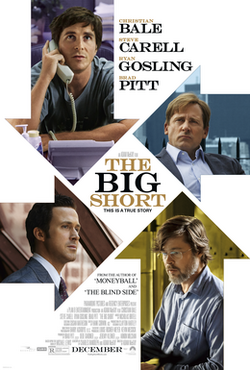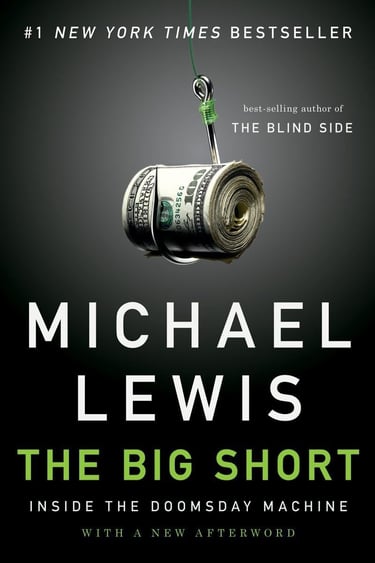“They knew… and they let it happen.”
Some characters don’t just exist on screen they live inside a feeling.
Mark Baum is one of them.
In The Big Short (2015), a sharp, cynical financial drama directed by Adam McKay, we follow a handful of outsiders who predicted the 2008 financial collapse. It’s based on the bestselling book by Michael Lewis and at the center stands Mark Baum, portrayed with grit and vulnerability by Steve Carell.
Inspired by real-life investor Steve Eisman, Baum isn’t your typical Wall Street character. He’s angry. He’s principled. He’s emotionally raw and yet laser-focused. He’s the rare figure who sees the system failing, feels the weight of that truth, and refuses to look away.
Before the Crisis: What Shaped Him
Mark Baum didn’t become who he is overnight. His fury didn’t start with the crash. It began much earlier in a life built on confrontation, inquiry, and loss.
The real person behind Baum, Steve Eisman, was raised in New York in a family of lawyers. He studied at elite schools, eventually graduating from the University of Pennsylvania and Harvard Law School. But Eisman never fully belonged. He questioned everything. He disliked structure for its own sake. Law was too rigid. Finance, chaotic as it was, left room for truth-seekers.
Even early in his career, Eisman was known as brilliant but difficult someone who couldn’t fake politeness, especially in the face of nonsense. While most played the game, he looked beneath it.
In the film, Baum’s character is given a personal wound the suicide of a brother. It’s a fictional detail, but it rings emotionally true. Whether through personal loss or systemic disillusionment, Baum walks through life with the unmistakable weight of grief, and the clarity it can bring.
He doesn’t just want to win.
He wants to understand why everyone else keeps losing.
A Fighter Within the System
Mark works inside Wall Street, but he’s fighting against it.
While others look away, he pays attention. While others chase profits, he calls out lies. And when he realizes millions will lose their homes not by accident, but by design he doesn't celebrate. He gets angry.
“They knew… and they let it happen.”
That line isn’t just about 2008.
It’s about every moment in history where truth is ignored for comfort or profit.
The Strengths and Flaws of Mark Baum
What makes him admirable:
Integrity: He cares about doing the right thing, not just the profitable thing.
Intellect: Sharp, skeptical, and unwilling to accept easy answers.
Moral clarity: His outrage is rooted in empathy for those the system fails.
Courage: He speaks up when silence would be easier — and more rewarding.
What makes him difficult:
Emotionally intense: His rage, though righteous, alienates those around him.
Cynical worldview: He often expects the worst, and it isolates him.
Blunt honesty: He doesn’t soften his words — even when it hurts relationships.
Disconnection: While fighting for humanity, he sometimes loses touch with his own.
In short: he’s brilliant but exhausting. A necessary voice, but not always an easy one.
Not Just Rage — Grief
Baum’s rage isn’t for show.
It’s grief turned outward. The kind that comes from losing something or someone and realizing how much of the world is built on pretending.
He’s lost people. He’s lost faith.
And as he pulls apart the lies of the financial system, he’s also confronting what those lies have done to him.
His wife, calm and composed, gently reminds him:
“You have to try to be human again.”
Because when you see too much, it's easy to forget how to feel.
Why He Still Matters
Mark Baum may be fictional, but what he represents is very real.
The person who sees the system’s cracks and refuses to stay quiet.
The one who demands answers, even when no one wants to listen.
The one who still chooses to care even when it hurt
Mark Baum: For Those Who See Too Much




